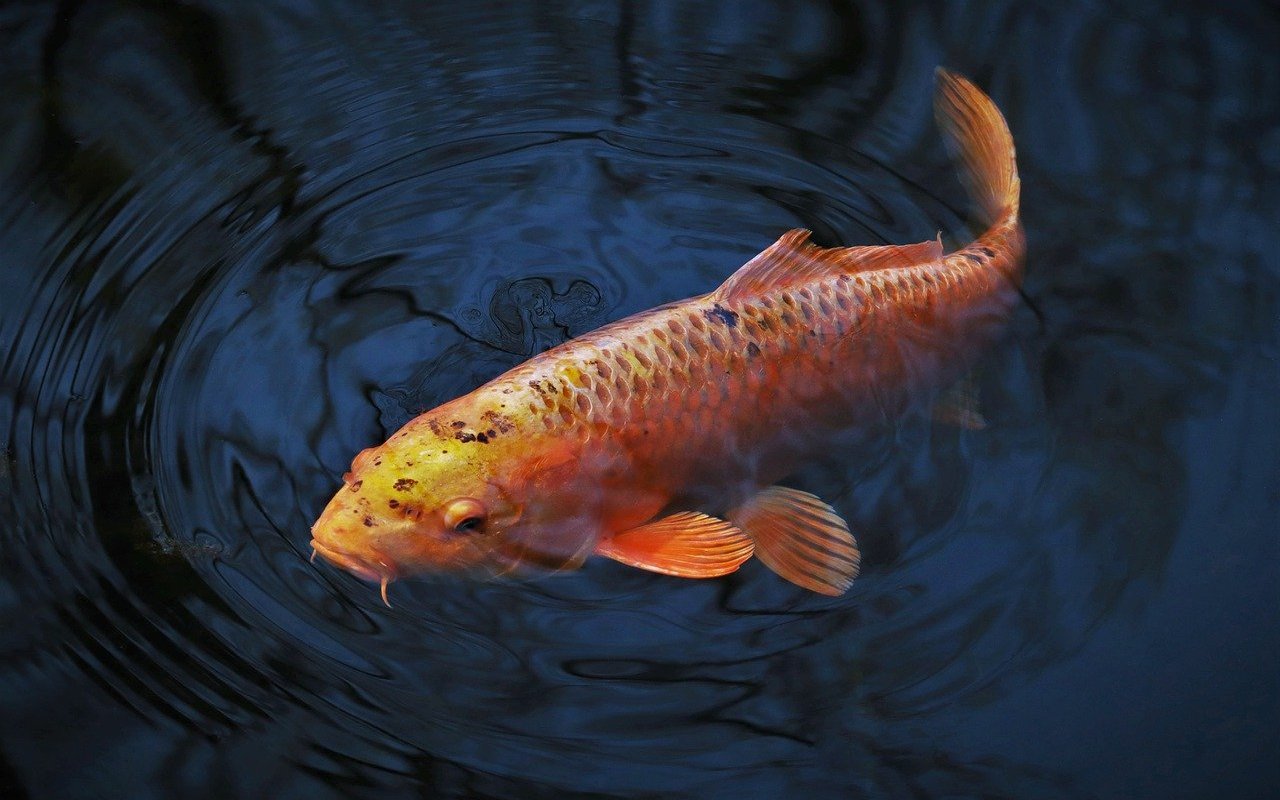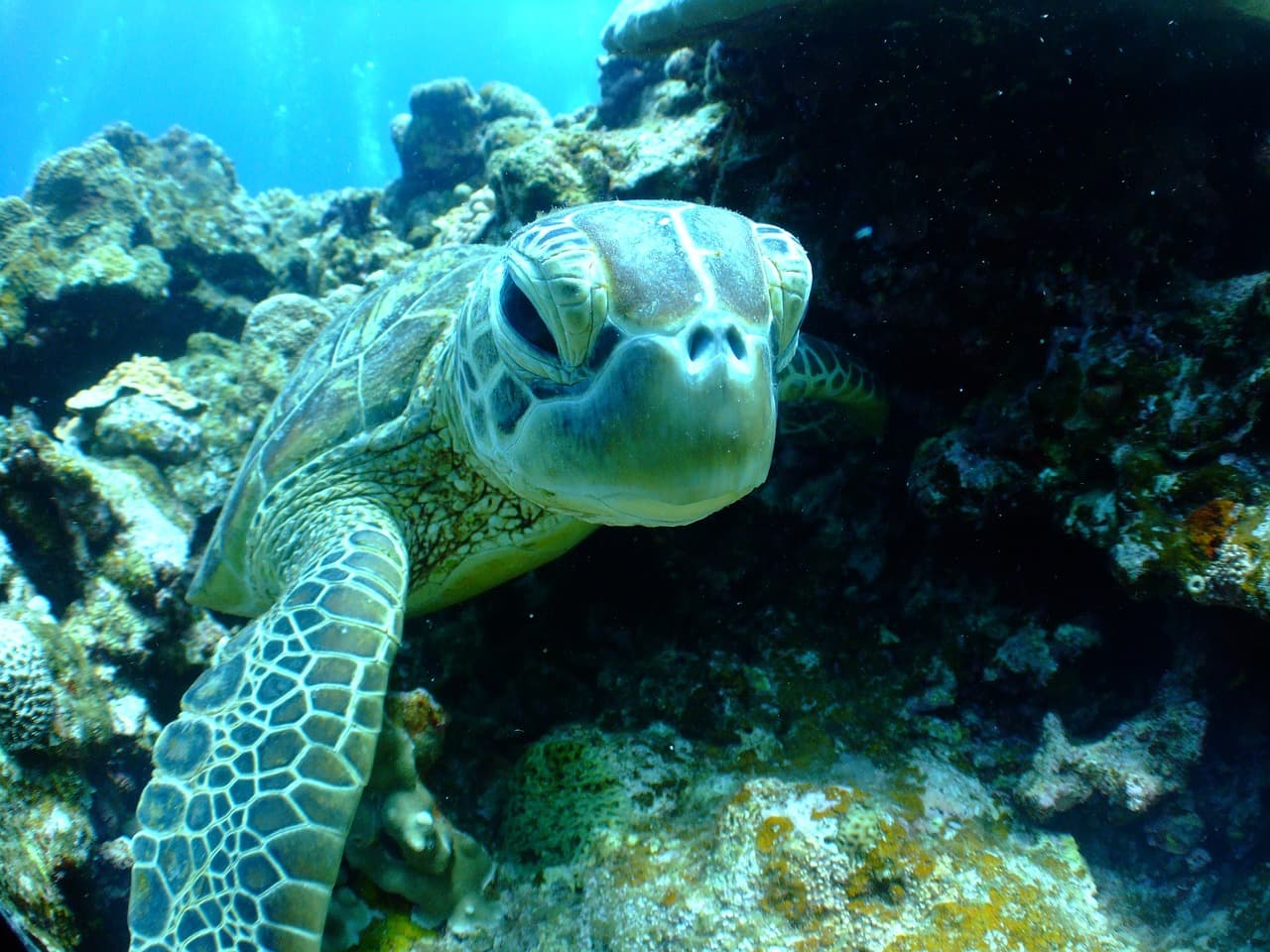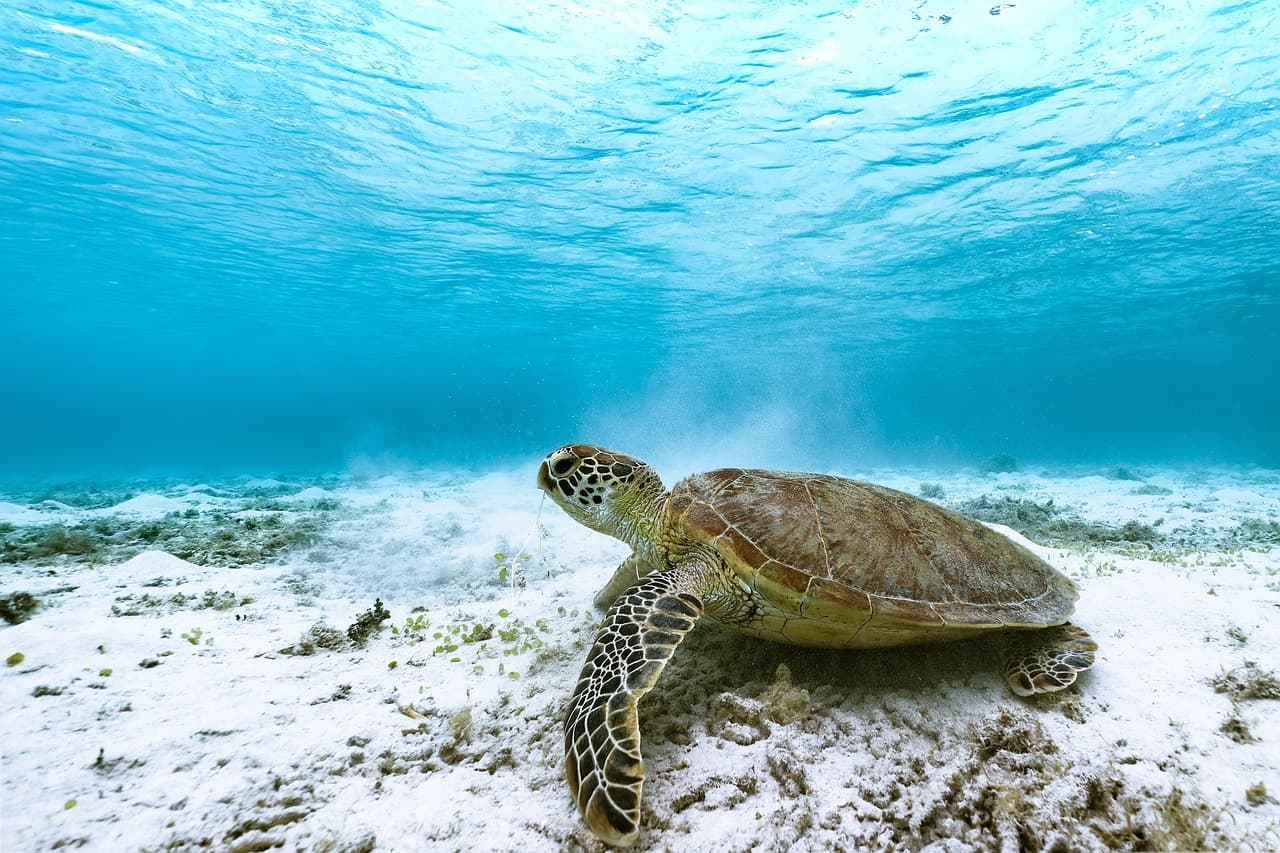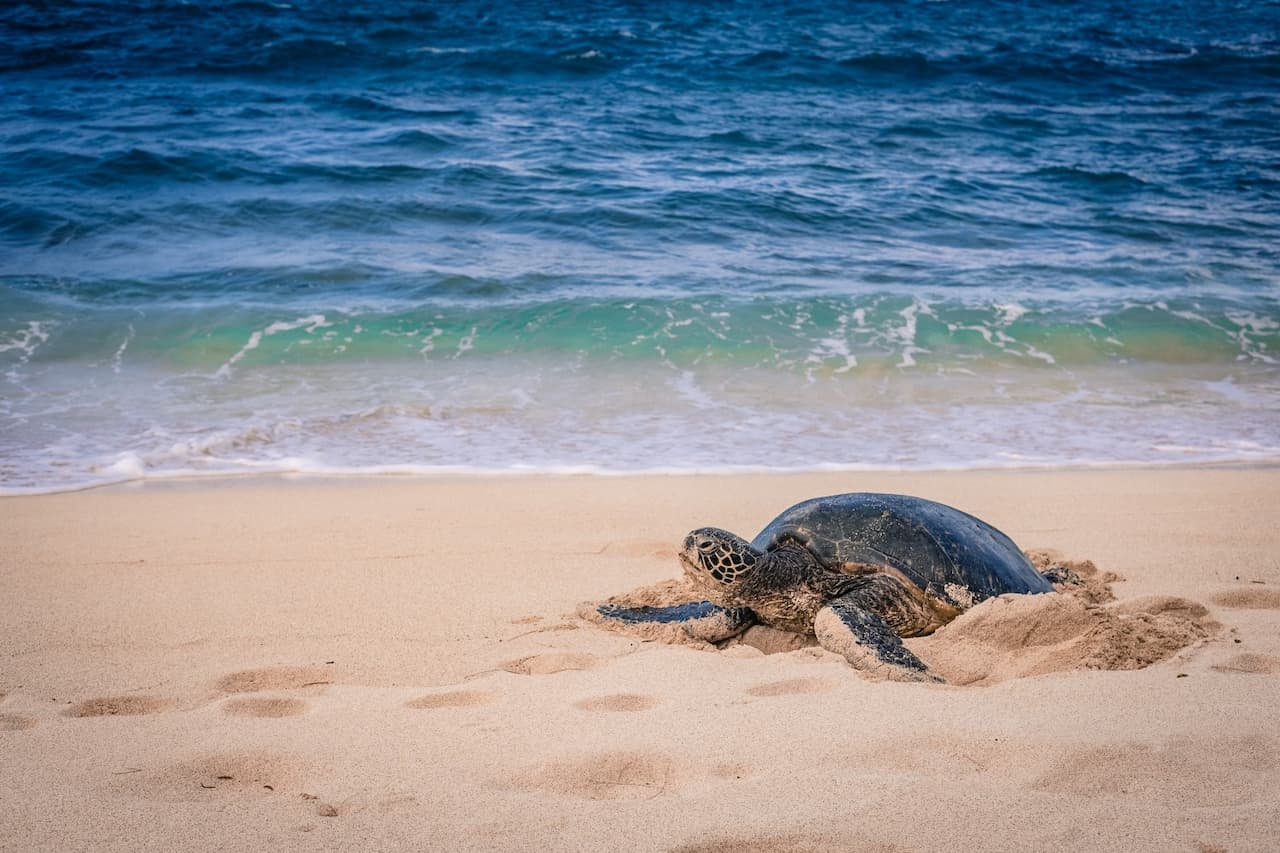A new marine protected area is being created near Ascension Island in the South Atlantic Ocean, an area twice as large as the area…
Full protection of 443,000 square kilometers of ocean around the British Overseas Territories will protect green turtles, swordfish, sharks, tuna and marlin, as well as frigates and terns.
Lewis Pugh, “patron” of the oceans at UNO-Environment welcomed this development: “I am extremely pleased to hear that Britain has heeded our call for full protection of the waters near Ascension Island, the jewel of the Atlantic Ocean. Protecting 30% of the world’s oceans should not remain just a dream.” Right now, marine protected areas cover only 7.6% of the world’s oceans.
Pugh visited Ascension Island as a boy and says he’ll never forget watching sharks circling his boat, green turtles laying eggs, and abundant wildlife.
“Ascension Island is a rare case of saving extraordinary abundance in the midst of a sea of decline,” he says, thanking the Blue Marine Foundation, the Royal Society for the Protection of Birds, the Great British Oceans Coalition, non-governmental organizations, scientists, civil servants and politicians for taking this step.
Conservationists also welcomed the UK Government’s support for the designation of the waters of this remote island as a Marine Protected Area.
Philip Hammond, Britain’s chancellor, used his spring statement to announce the government’s support for the Ascension Island Council’s call to designate the island’s waters as a marine protected area in which fishing is prohibited.
The move is part of the state’s Blue Belt program to protect millions of square kilometers of oceans in its overseas territories. Michael Gove, Secretary of the Environment said, “With maritime holdings that stretch across the globe, Britain is uniquely positioned to lead the way in protecting the world’s oceans and the precious fauna and flora of the seas.
“Today’s progress toward full protection of all waters near Ascension Island is an important step in expanding our Blue Belt program and protecting one-third of the world’s oceans through 2030. I hope states from around the world will follow suit.”
Marine protected areas are an important tool for conserving the biodiversity of the world’s oceans.
“Ambitious interventions to protect marine and coastal ecosystems, like the one undertaken on Ascension Island, are extremely useful,” says Ole Westergaard, marine specialist at the United Nations Environment Programme, “not only for the unique underwater biodiversity whose habitat they are, but also to protect their valuable contribution to keeping oceans healthy and functioning, supporting food security and resilience-an essentially cost-effective, natural solution to climate change.”




